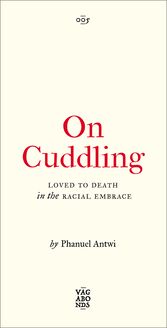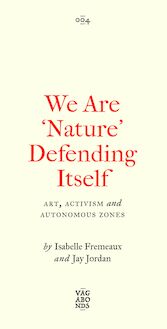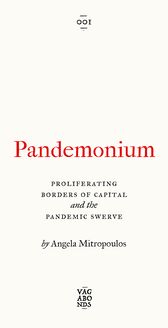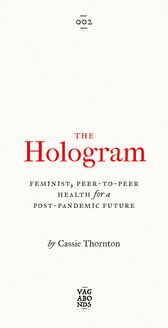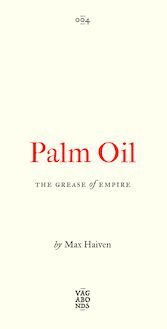Palm Oil , livre ebook
66
pages
English
Ebooks
2022
Vous pourrez modifier la taille du texte de cet ouvrage
Obtenez un accès à la bibliothèque pour le consulter en ligne En savoir plus
Découvre YouScribe et accède à tout notre catalogue !
Découvre YouScribe et accède à tout notre catalogue !
66
pages
English
Ebooks
2022
Vous pourrez modifier la taille du texte de cet ouvrage
Obtenez un accès à la bibliothèque pour le consulter en ligne En savoir plus
Publié par
Date de parution
20 avril 2022
Nombre de lectures
4
EAN13
9780745345840
Langue
English
It’s in our food, our cosmetics, our fuel and our bodies. Palm oil, found in half of supermarket products, has shaped our world. Max Haiven uncovers how the gears of capitalism are literally and metaphorically lubricated by this ubiquitous elixir.
From its origins in West Africa to today’s Southeast Asian palm oil superpowers, Haiven’s sweeping, experimental narrative takes us on a global journey that includes looted treasures, the American system of mass incarceration, the history of modern art and the industrialisation of war. Beyond simply calling for more consumer boycotts, he argues for recognising in palm oil humanity’s profound potential to shape our world beyond racial capitalism and neo-colonial dispossession.
One part history, one part dream, one part theory, one part montage, this kaleidoscopic and urgent book asks us to recognise the past in the present and to seize the power to make a better world.
Palm Oil
Radical pamphlets to fan the flames of discontent at the intersection of research, art and activism.
Series editor: Max Haiven
Also available
001 Pandemonium: Proliferating Borders of Capital and the Pandemic Swerve Angela Mitropoulos
002 The Hologram: Feminist, Peer-to-Peer Health for a Post-Pandemic Future Cassie Thornton
003 We Are Nature Defending Itself: Entangling Art, Activism and Autonomous Zones Isabelle Fremeaux and Jay Jordan Published in collaboration with the Journal of Aesthetics Protest
004
Palm Oil
The Grease of Empire
Max Haiven
First published 2022 by Pluto Press New Wing, Somerset House, Strand, London WC2R 1LA
www.plutobooks.com
Copyright © Max Haiven 2022
The right of Max Haiven to be identified as the author of this work has been asserted in accordance with the Copyright, Designs and Patents Act 1988.
British Library Cataloguing in Publication Data A catalogue record for this book is available from the British Library
ISBN 978 0 7453 4582 6 Paperback ISBN 978 0 7453 4586 4 PDF ISBN 978 0 7453 4584 0 EPUB
This book is printed on paper suitable for recycling and made from fully managed and sustained forest sources. Logging, pulping and manufacturing processes are expected to conform to the environmental standards of the country of origin.
Typeset by Stanford DTP Services, Northampton, England
Simultaneously printed in the United Kingdom and United States of America
Contents
Whose grease?
Whose punishment?
Whose fetish?
Whose weapon?
Whose fat?
Whose surplus?
Whose sacrifice?
Whose story?
Acknowledgments
Notes
Artist: Amanda Priebe
Whose grease?
We find ourselves in a system of racial capitalism that appears as a vast, globe-spanning system of mystified human sacrifice, hidden in plain sight. The stories of palm oil I want to tell you will trace this system s contours and seek answers in its past. These are a story of how one largely invisible thing emerged from the nexus of capitalism, colonialism, and empire to define the cruelties of our world. Secreted within it is a story of our collective power to transform the world for the better. The story of palm oil is our story. This almost magical and ubiquitous substance is part of the way our bodies reproduce themselves and the way our material world is reproduced. It is a key element in the vortex of labor, commodities, meaning-making, and social relationships that make up the world in which we both live. Palm oil binds us, revealing the space in between, the syntax of the world.
Nearly every element of the process that now finds you reading these words could have been touched or facilitated by palm oil: 1 it could be an additive in the paper, a stabilizer in the ink, or part of the resin in the binding of the book; it is almost certainly either inside or essential to the manufacture of one of the hundreds of the components of the digital electronic device on which I am typing these words, and on which you might be reading them. It s probable that one of the transport vehicles that conveyed these artefacts to you burned hydrocarbons that included palm oil-derived agrofuels. And it must be taken as given that the body and brain that writes and that reads has been reproduced, in part, through the metabolism of palm oil. We have both used palm oil products to clean or care for our skin. We have ingested palm oil as a carrier of medicines. Though I suspect neither of us are intentionally investors in the palm oil industry, we are nonetheless economically entangled with it. The money that we receive for our labor is blood in the same ocean. Though it derives from a natural source, we created refined palm oil as it exists today, and it has, in turn, helped to created us.
In the story of palm oil, we can catch a glimpse of the world as it is made and unmade. To read a world of palm oil as if it were our story is to recognize what connects us and what divides us. My hope is that in paying attention to palm oil we might exercise some shared narrative muscle, so long atrophied in this world of competitive individualism, so that some we emerges that can better know itself and act in concert to change our fate. If we made this world from palm oil, what else could we have made? What else might we yet make?
In the past, my work has been dedicated to trying to grasp what we don t understand about capitalism. We understand that it is a global system that organizes the energies of humans and non-humans toward the production of commodities in the interests of profit. We understand that it has given birth to the structure of the corporation, that terrifying metahuman entity that magnifies our worst qualities (avarice, indifference, rapaciousness). We understand that capitalism arose entangled with colonialism and racism and has never survived without them. Elsewhere, I have tried to understand how, today, in a global capitalist economy dominated by debt and credit, we are all compelled or seduced into transforming ourselves into competitive risk takers, miniature financiers, leveraging all aspects of our lives as assets and gambits to secure our individuated futures. 2 I have also tried to understand how, when these individual acts of risk management manifest on the level of a system, it produces a pattern that appears as if capitalism is taking a needless, warrantless, and terrifyingly self-destructive vengeance on people and the earth. 3
In this short book I am trying to understand something that is abundantly obvious and yet somehow also unseeable: this system seems to be a vast and merciless organization of human sacrifice. Unlike the sensationalist images of that bloody custom, which has been practiced by many of the world s civilizations though under very different circumstances, the global capitalist order of human sacrifice is one that denies itself. The relentless logic of the market insists that the millions of needless deaths from malnutrition, toxic poisoning, overwork, sabotaged migration, climate chaos, or neo-imperialist wars are somehow accidental, incidental, or inevitable. But my wager is that, in telling a story of palm oil, we can recognize that we live in what Ruth Wilson Gilmore calls the age of human sacrifice. 4 And we can see how it emerges from a longer history of racial capitalism that makes some people vastly more susceptible to disposability than others.
By palm oil I am speaking of the derivative of specific palm plants, mostly Elaeis guineensis , the African oil palm, but also sometimes cultivated from its central American relatives, Elaeis oleifera and the more distant Attalea maripa . Oil palms are among the world s most bountiful and useful plants. E. guineensis , from which we get most of the world s palm oil, is native to West Africa, where people have cultivated and treasured it for centuries. From its marvelous saffron-colored seedpods (which, when ready to harvest, can weigh over 10kg) African people have for millennia derived not only cooking oil but also lamp oil, cosmetics, medicines, artistic materials, sacraments, and dyes. From its sap comes palm wine and a wide variety of remedies. From its leaves come roof thatching and arrow and spear shafts. 5 Yesterday and today, fragrant, fleshy, palm oil has served ceremonial and spiritual purposes in Africa and its diaspora. For many, red, virgin palm oil is the taste of home, the taste of family, the taste of history.
In the course of my research I had the pleasure of hearing stories of palm oil and E. guineensis from many who hail from West Africa. They universally told me of the great admiration people have for this ever-giving plant, how central it and its gifts are to ancient traditions and also to the spirit of innovation and creativity that has seen West African people transform it into so many things. My friends vividly described the aroma of the fruit. West Africans have an almost infinite number of uses for many of its parts: the fleshy exterior, the hard husk that protects the inner kernel, and the oily inner mass. Its unique textures and pigments both season and decorate hundreds of savory dishes. It s so beloved that, in the remote, cold Canadian city where I wrote the bulk of this book, the local Nigerian community goes to great lengths to import different varieties of it. The particular terroir bestows a unique and subtle taste. More than once I have been shown a photograph of children knee-deep in a bathtub full of palm kernels helping to expel the precious oil, much as their ancestors had done, in moments of familial and community solidarity. Some have pointed to the palm plants in the background of these photographs, which tower over family compounds or garden allotments like flagpoles bearing the standard of some republic that was never allowed to exist. In their natural habitat, E. guineensis can live up to 200 years and bear usable fruit for 60 of those - they have long memories. My friends tell me that before (the European missionaries, the slave trade, imperialism, postcolonial debt bondage), palm oil wasn t only an important source of nutrition, but an intimate common cultural reference point, a spiritual sacrament and a staple trade commodity, even a form of money. It tied together vast trade networks throughout Africa and beyond. The fat was the medium of cosmopolitan material and cultural exchange, a lubricant of social life. 6 In northern Brazil, communities of Africans who liberated themselves from enslavement found in the local variant of the oil palm a familiar friend that supplied many of the necessities of a fugitive life. 7
But, of course, the form of palm oil that you and I know is something else entirely: industrially produced derivatives of the palm fruit can, like a god with many faces, appear as some 200 different ingredients in nutritional, industrial, and cleansing products around the world. 8 RBD (refined, bleached, and deodorized) oil has become a staple of the diets of billions
